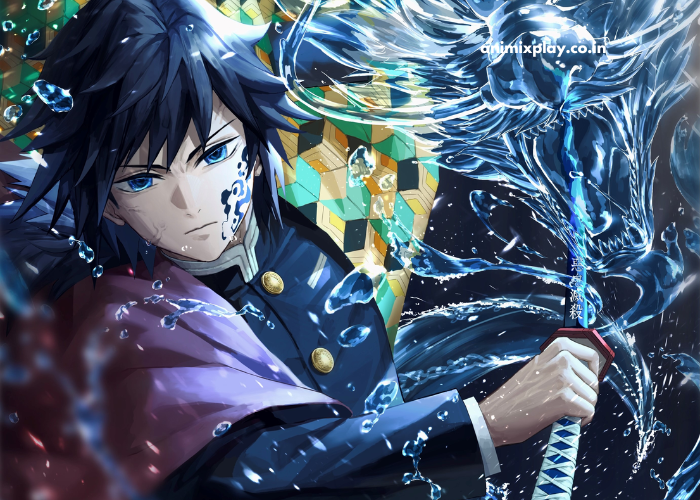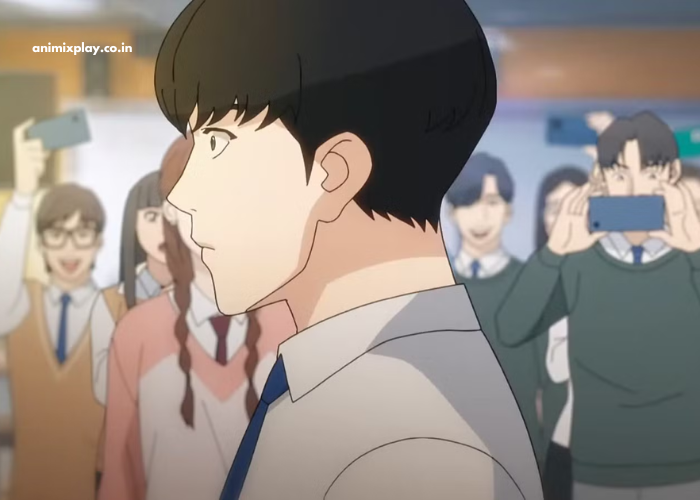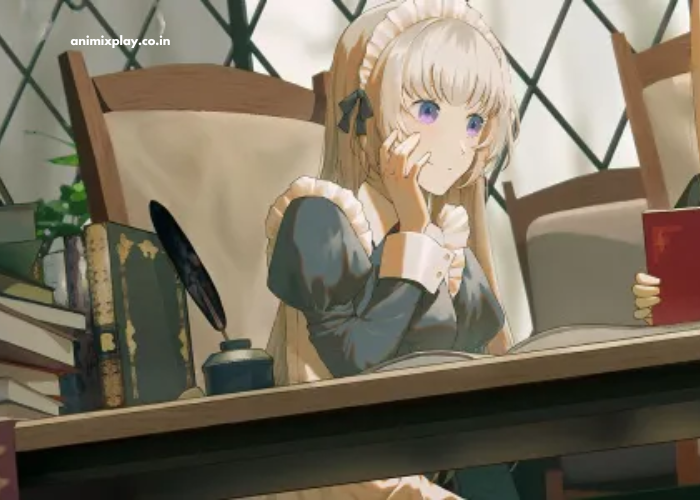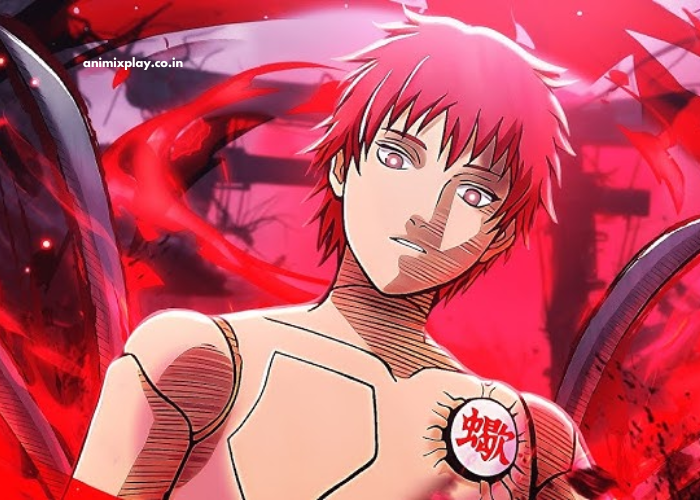Giyu Tomioka, the Water Hashira in Demon Slayer: Kimetsu no Yaiba, is one of the most revered and complex characters in the series. As a member of the elite group of Demon Slayer Corps, known as the Hashira, Giyu plays a critical role in the fight against demons. His calm demeanor, incredible combat skills, and deep sense of duty have made him a fan favorite among viewers and readers alike.
What truly sets Giyu apart from the other Hashira is not just his prowess in battle, but also his unique personality and the way he interacts with other characters. Despite his stoic nature, Giyu has a deep sense of compassion for those who suffer, which influences his actions throughout the series. His story is one of growth, redemption, and the constant struggle between duty and personal beliefs.
In this blog, we will dive deeper into the qualities that make Giyu Tomioka such a standout character in Demon Slayer, exploring his combat abilities, his role in the story, and how he develops over time.
Key Points:
- Giyu Tomioka is known for his mastery of Water Breathing techniques.
- He plays a pivotal role in the early development of Tanjiro Kamado’s journey.
- His calm yet compassionate nature makes him one of the most beloved characters in Demon Slayer.
What Makes Giyu Tomioka Stand Out Among the Hashira?
As a Hashira, Giyu is one of the most powerful and skilled demon slayers. However, what makes him stand out from the other Hashira is his combat style and personality. Giyu is known for his unmatched control over the Water Breathing techniques, which allow him to deliver swift and precise attacks. His techniques are fluid, adaptable, and deadly, making him a force to be reckoned with.
One of Giyu’s most notable traits is his ability to remain calm in any situation. Whether facing a powerful demon or interacting with his fellow demon slayers, Giyu’s composed and logical approach allows him to think clearly and make decisions that benefit the larger cause. Unlike some of the other Hashira, who may act impulsively or emotionally, Giyu’s level-headedness helps him navigate the often chaotic world of demon slaying.
His role in Demon Slayer is significant not only because of his combat abilities but also because of his mentorship of Tanjiro Kamado. Giyu’s decision to spare Tanjiro’s life at the beginning of the series sets in motion a series of events that affect the entire narrative. This act of mercy highlights Giyu’s sense of compassion and his belief in the potential for redemption, even in the most unlikely individuals.
Note: Giyu Tomioka’s calm nature and his mastery of Water Breathing make him a unique and memorable character in Demon Slayer.
How Does Giyu’s Combat Style Reflect His Personality?
Giyu’s combat style is defined by his proficiency in the Water Breathing techniques. These techniques are known for their grace, fluidity, and precision, much like Giyu himself. Water Breathing emphasizes adaptability, allowing the user to adjust their movements and attacks based on the situation at hand. This flexibility mirrors Giyu’s personality: he is someone who doesn’t act rashly but instead adapts to the circumstances with a cool head.
The Water Breathing techniques include powerful moves such as the “Water Surface Slash,” “Water Wheel,” and “Constant Flux.” Each of these moves is designed to overpower demons in an efficient manner while conserving energy. Giyu’s fluid movements in battle are a direct reflection of his calm and measured approach to life. His technique allows him to face even the most dangerous demons with a clear mind, making him an invaluable asset to the Demon Slayer Corps.
In terms of personality, Giyu’s battle style shows his ability to remain patient and controlled, even in the face of extreme danger. Unlike other characters who may rely on raw power or emotion in battle, Giyu’s focus on precision and efficiency helps him remain one of the top fighters in the Corps.
What Is Giyu’s Role in Tanjiro’s Journey?
Giyu’s role in Tanjiro Kamado’s journey is one of the most significant aspects of his character development. At the beginning of the series, Giyu is the first Hashira to encounter Tanjiro, and it is through his actions that Tanjiro’s path as a demon slayer is set in motion. When Giyu encounters Tanjiro and his sister Nezuko, who has been turned into a demon, he initially considers killing Nezuko but ultimately decides to spare her life.
This act of mercy is pivotal because it allows Tanjiro and Nezuko to continue their journey, which later leads to the formation of strong bonds with other demon slayers. Giyu’s decision is based on his belief that there is potential for redemption, even for demons, and it represents his inner conflict between following the strict orders of the Demon Slayer Corps and acting out of compassion. His actions directly influence Tanjiro’s development as a character and serve as a turning point in the story.
Furthermore, Giyu later becomes a mentor to Tanjiro, offering him guidance and support throughout the series. While Giyu is not an overly expressive mentor, his influence on Tanjiro is immense, teaching him both combat techniques and the value of perseverance in the face of overwhelming odds.
How Does Giyu’s Backstory Shape His Character?
Giyu Tomioka’s backstory plays a significant role in shaping the character we see in Demon Slayer. As a young boy, Giyu experienced immense trauma. He lost his family to demons and was taken in by his mentor, Urokodaki, who taught him the ways of the Water Breathing techniques. This tragic experience helped form Giyu’s strong sense of duty and his desire to protect others, even when it means making difficult choices.
Giyu’s personal experiences with loss also contribute to his stoic nature. He is often seen as distant and unemotional, but this behavior is rooted in the pain he has experienced in his life. His struggle to reconcile his emotions with his duties as a demon slayer adds depth to his character and makes him more relatable to the audience. Giyu’s internal conflict between duty and personal feelings is a recurring theme in his journey, and it humanizes him in a way that resonates with viewers.
Reminder: Giyu’s tragic backstory and personal struggles help define his character as someone who is both powerful and deeply human.
Conclusion
Giyu Tomioka stands out as one of the most complex and compelling characters in Demon Slayer. His mastery of the Water Breathing techniques, his calm and collected personality, and his deep sense of compassion make him a unique member of the Hashira. Through his mentorship of Tanjiro and his willingness to spare Nezuko’s life, Giyu’s actions not only impact the story but also demonstrate his personal growth and internal conflict.
Whether it’s his strategic approach to combat, his role as a mentor, or his quiet but unwavering dedication to protecting others, Giyu’s journey in Demon Slayer is one of self-reflection, duty, and resilience. As the series progresses, Giyu’s character continues to evolve, making him an essential part of the narrative and a fan favorite among viewers.
FAQ’s
- What makes Giyu Tomioka different from other Hashira?
Giyu is known for his calm demeanor, precision in combat, and deep sense of compassion. Unlike some other Hashira, Giyu tends to think logically and remains composed even in difficult situations. - How does Giyu Tomioka contribute to Tanjiro’s journey?
Giyu’s decision to spare Tanjiro’s sister, Nezuko, at the beginning of the series sets Tanjiro on his path as a demon slayer and plays a crucial role in his development. - What is Giyu’s combat style?
Giyu’s combat style revolves around Water Breathing techniques, which are fluid, adaptable, and precise. His fighting style emphasizes efficiency and control rather than raw power. - How does Giyu Tomioka handle his inner conflict?
Giyu struggles with balancing his duty as a demon slayer and his personal emotions, often questioning his decisions and dealing with the trauma of his past. - What is Giyu Tomioka’s backstory?
Giyu’s backstory is filled with tragedy, as he lost his family to demons and was taken in by his mentor. This shaped his sense of duty and his desire to protect others, even at great personal cost.




